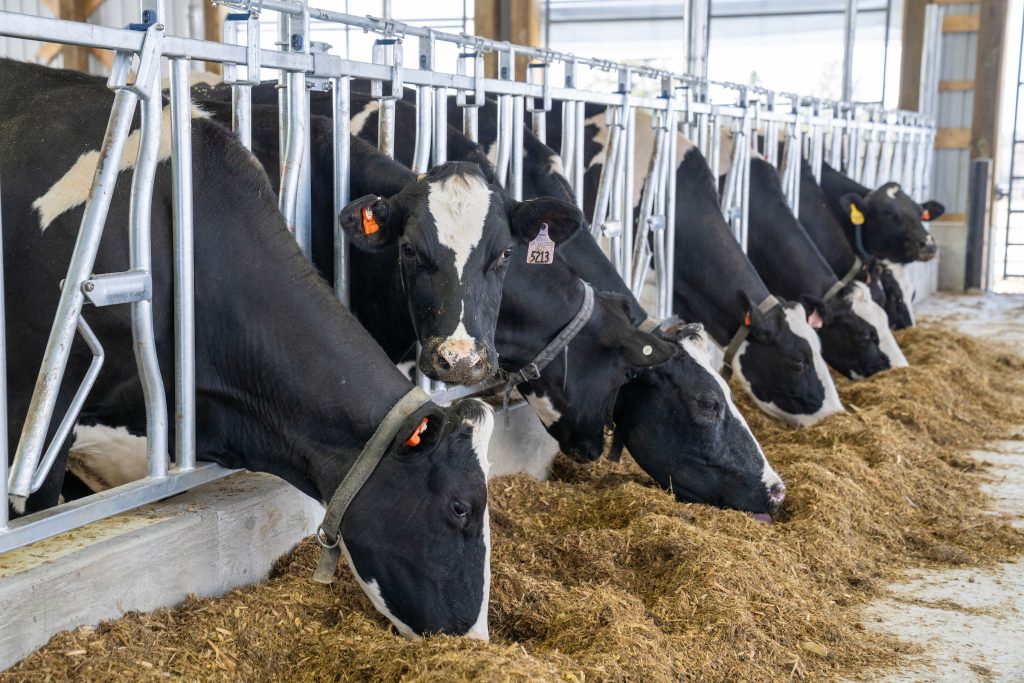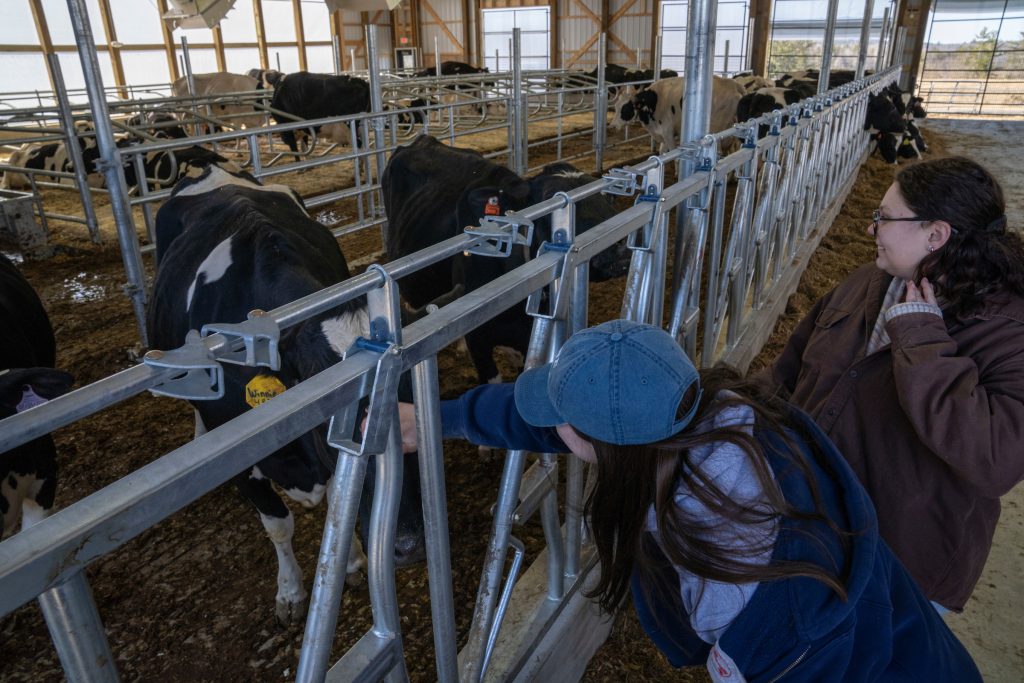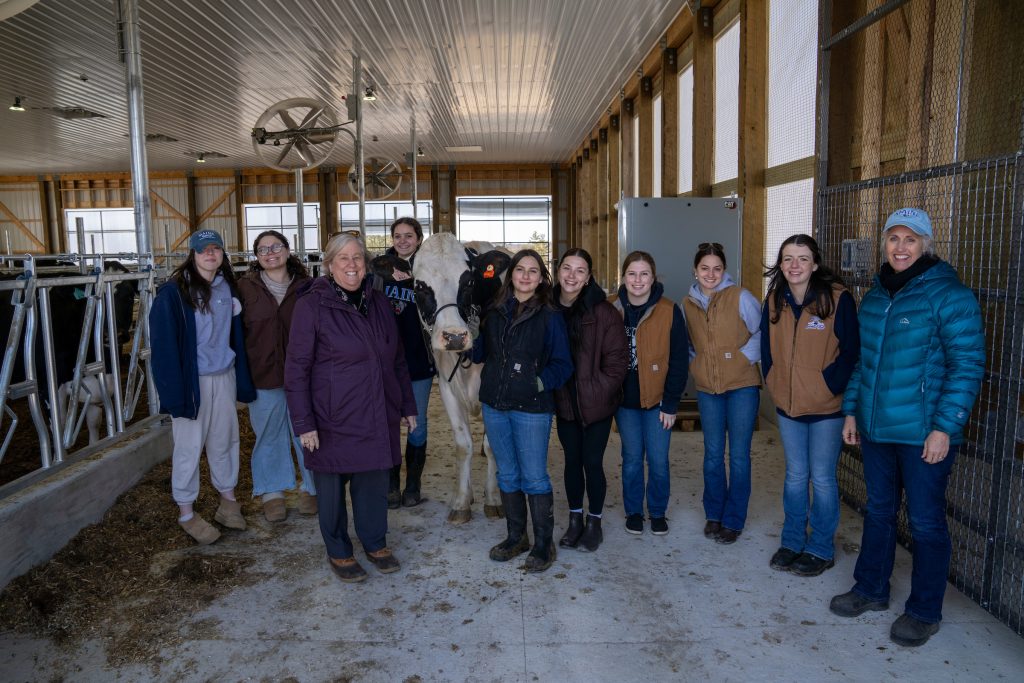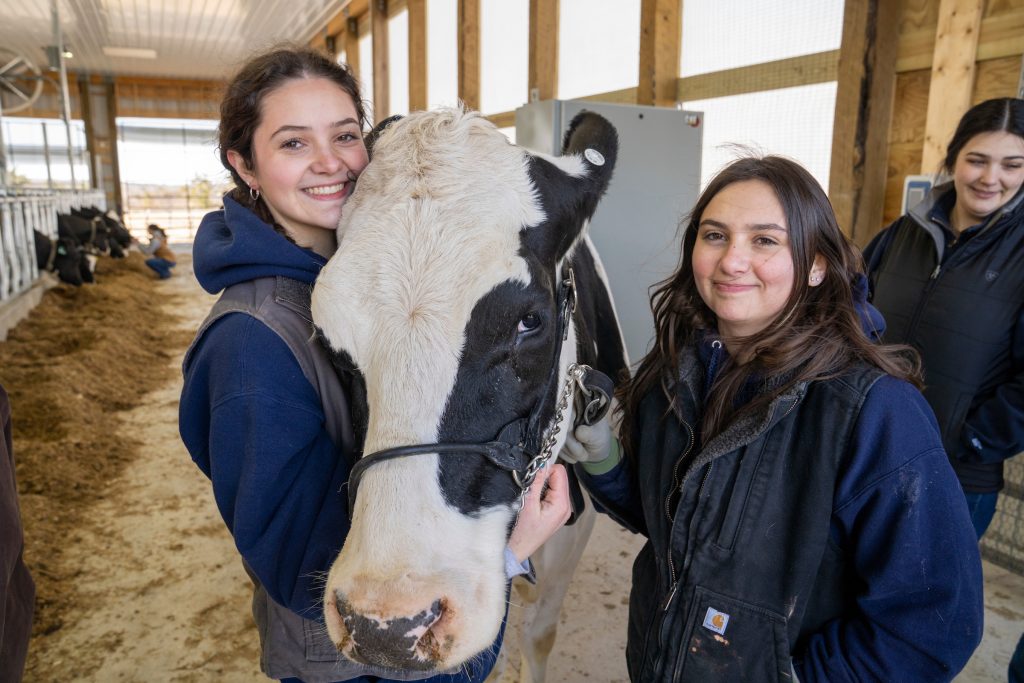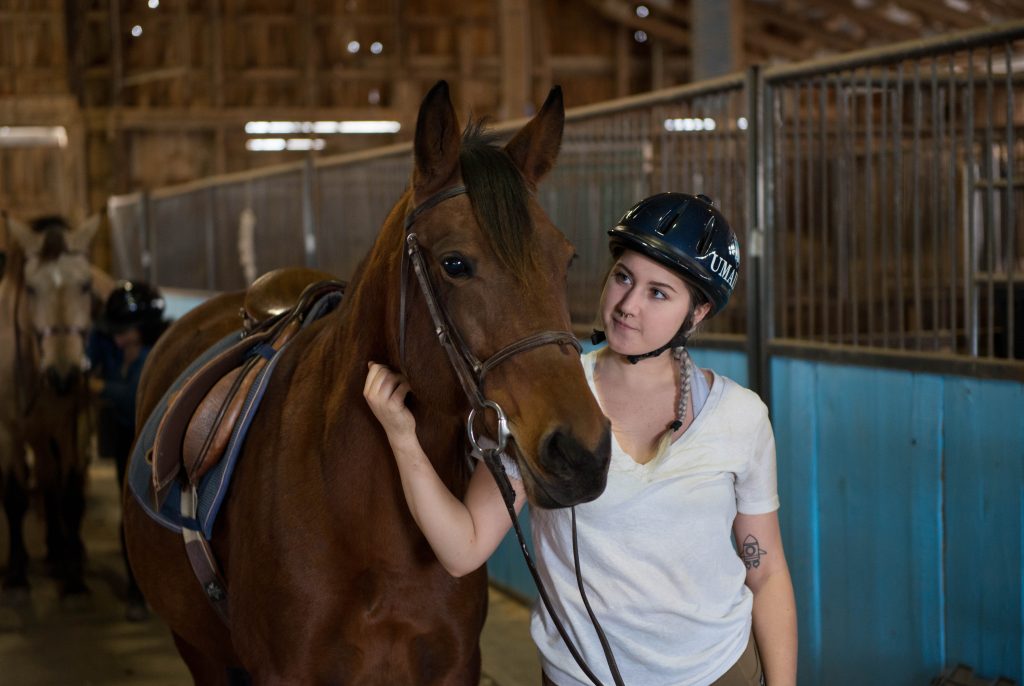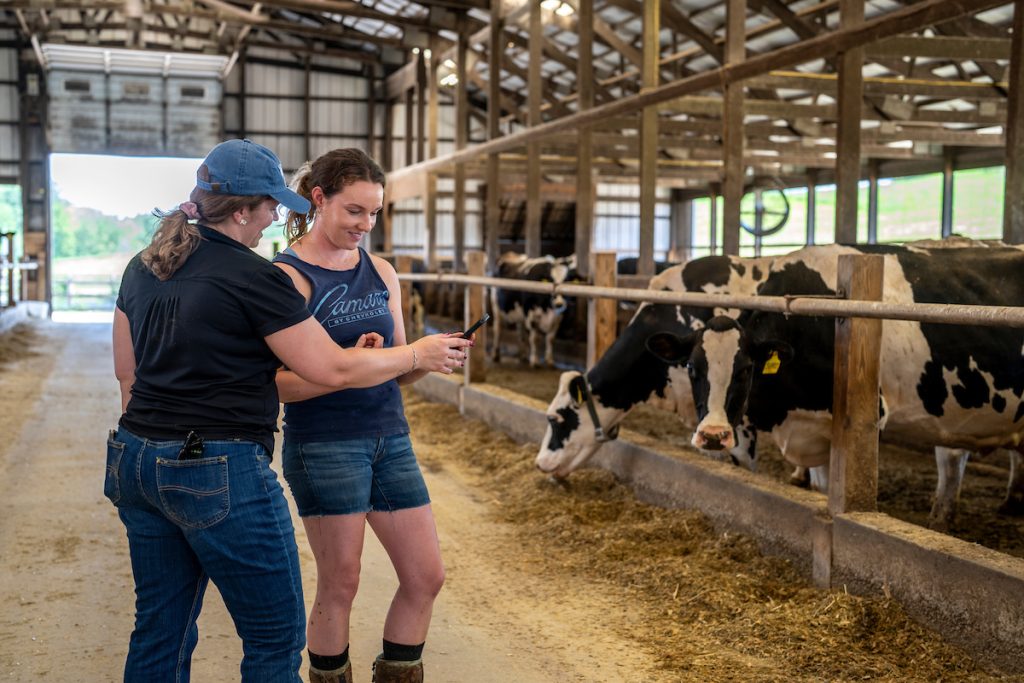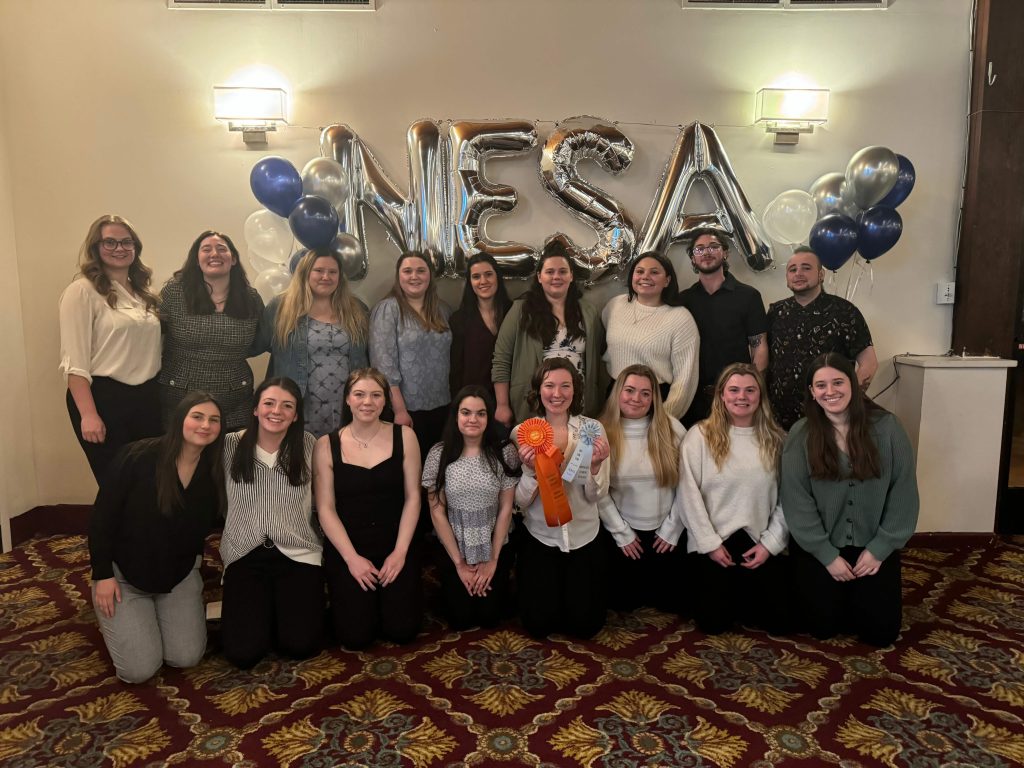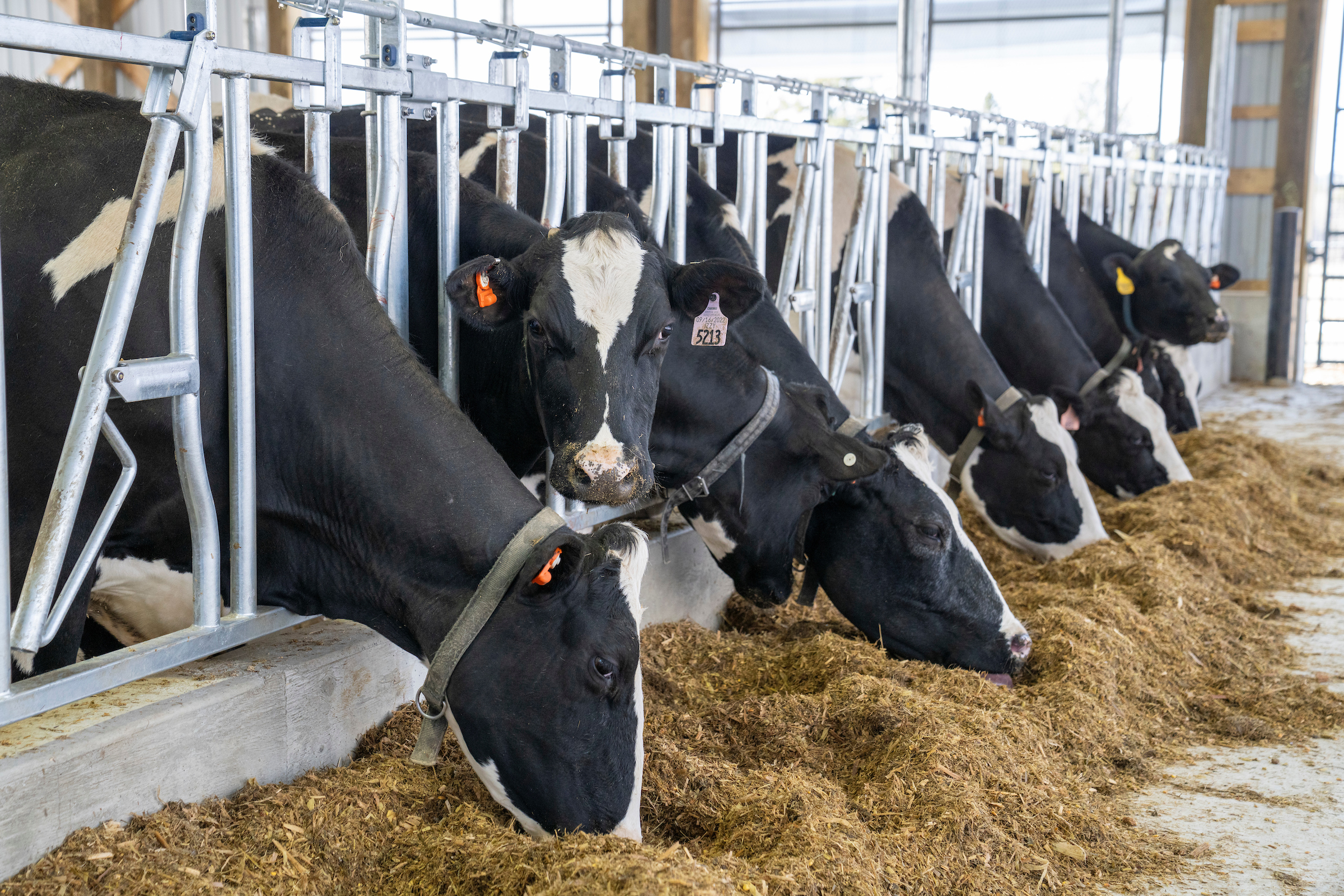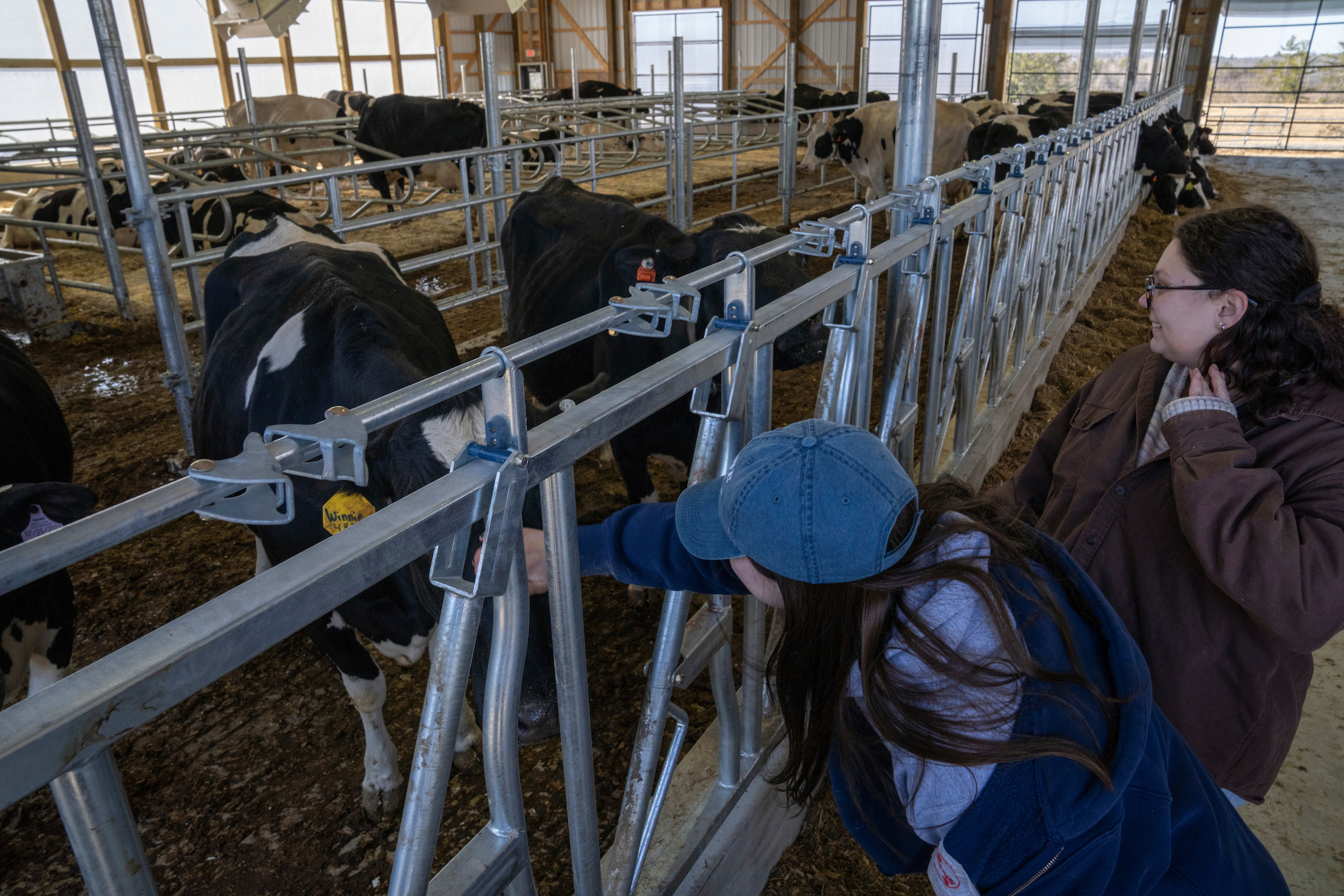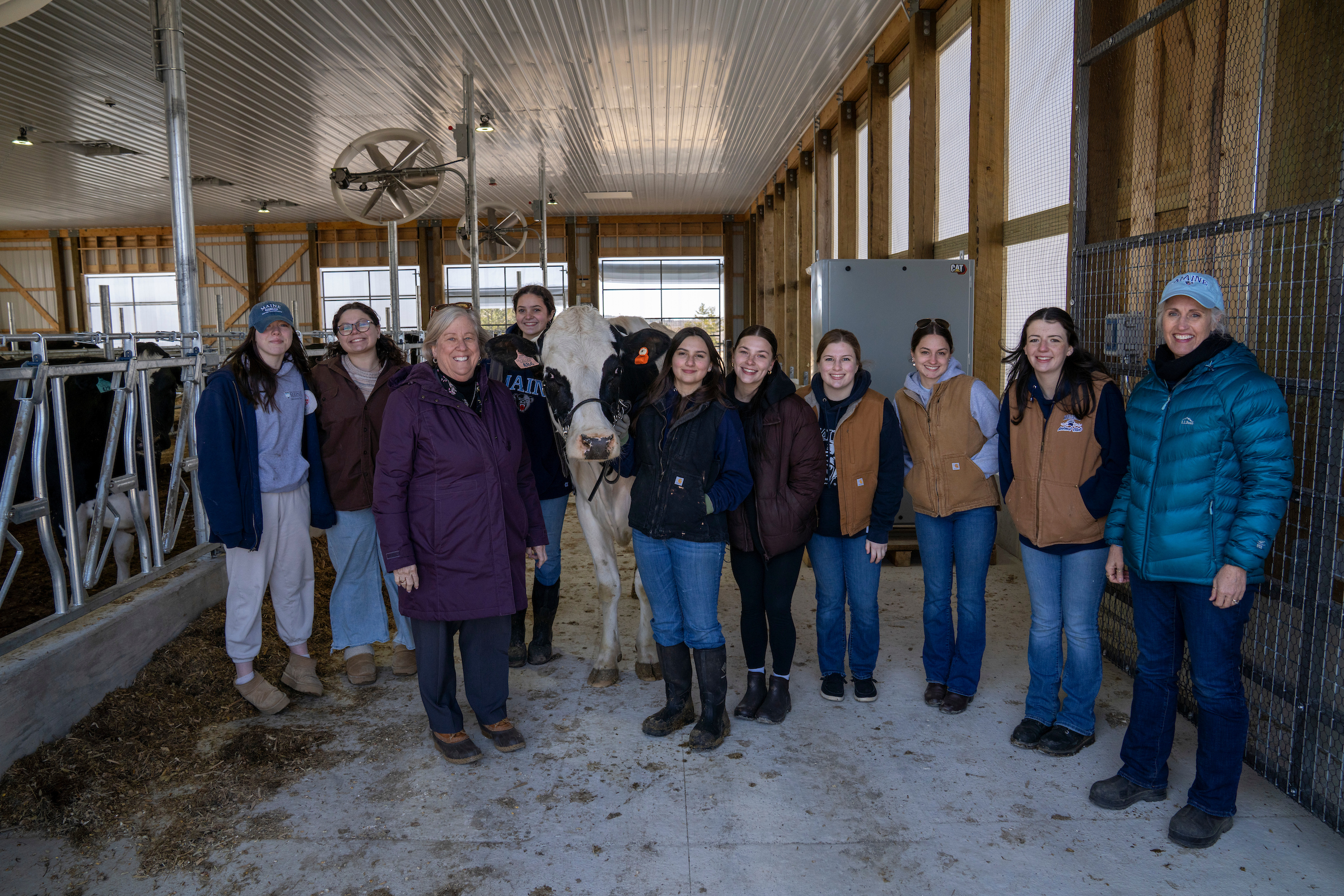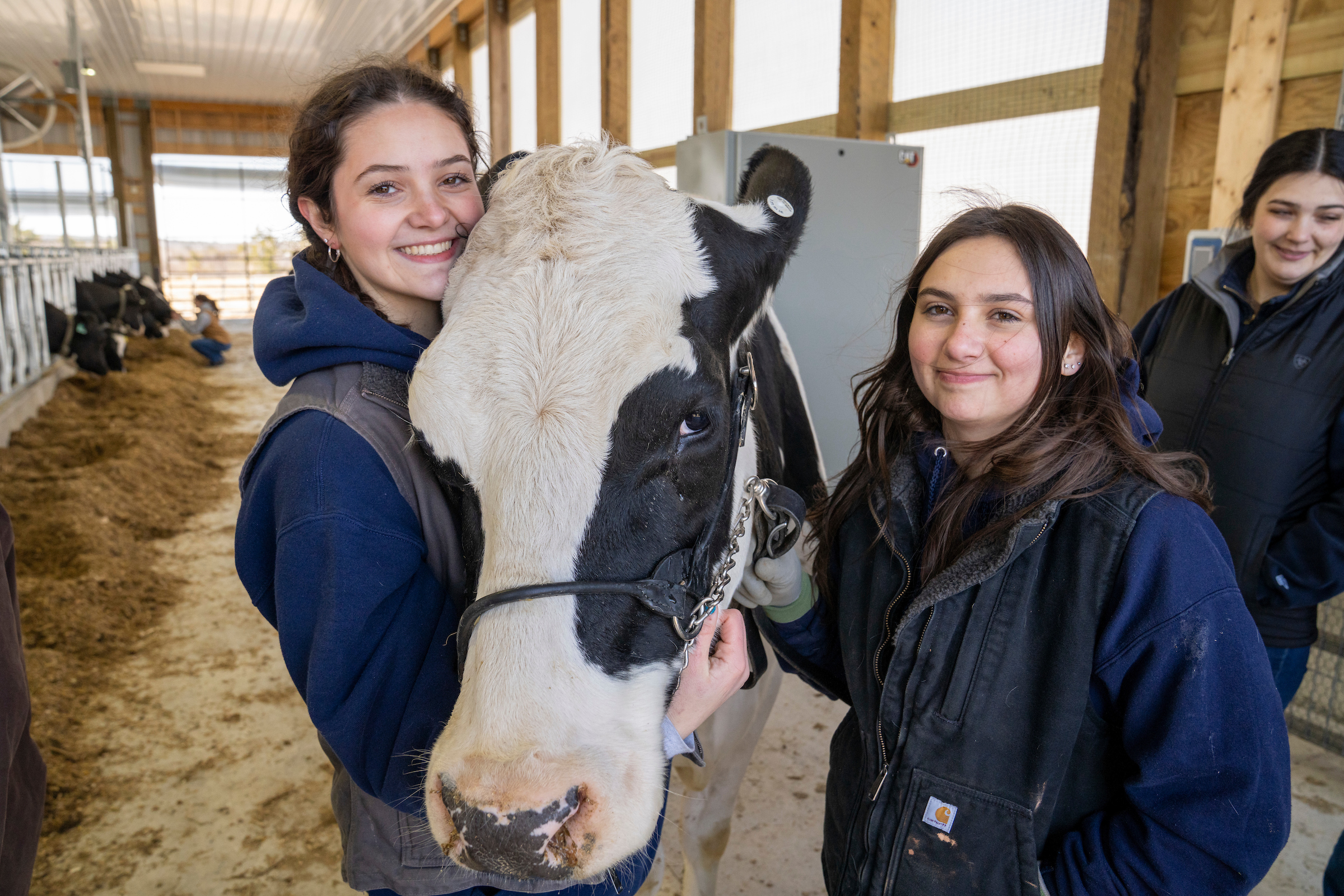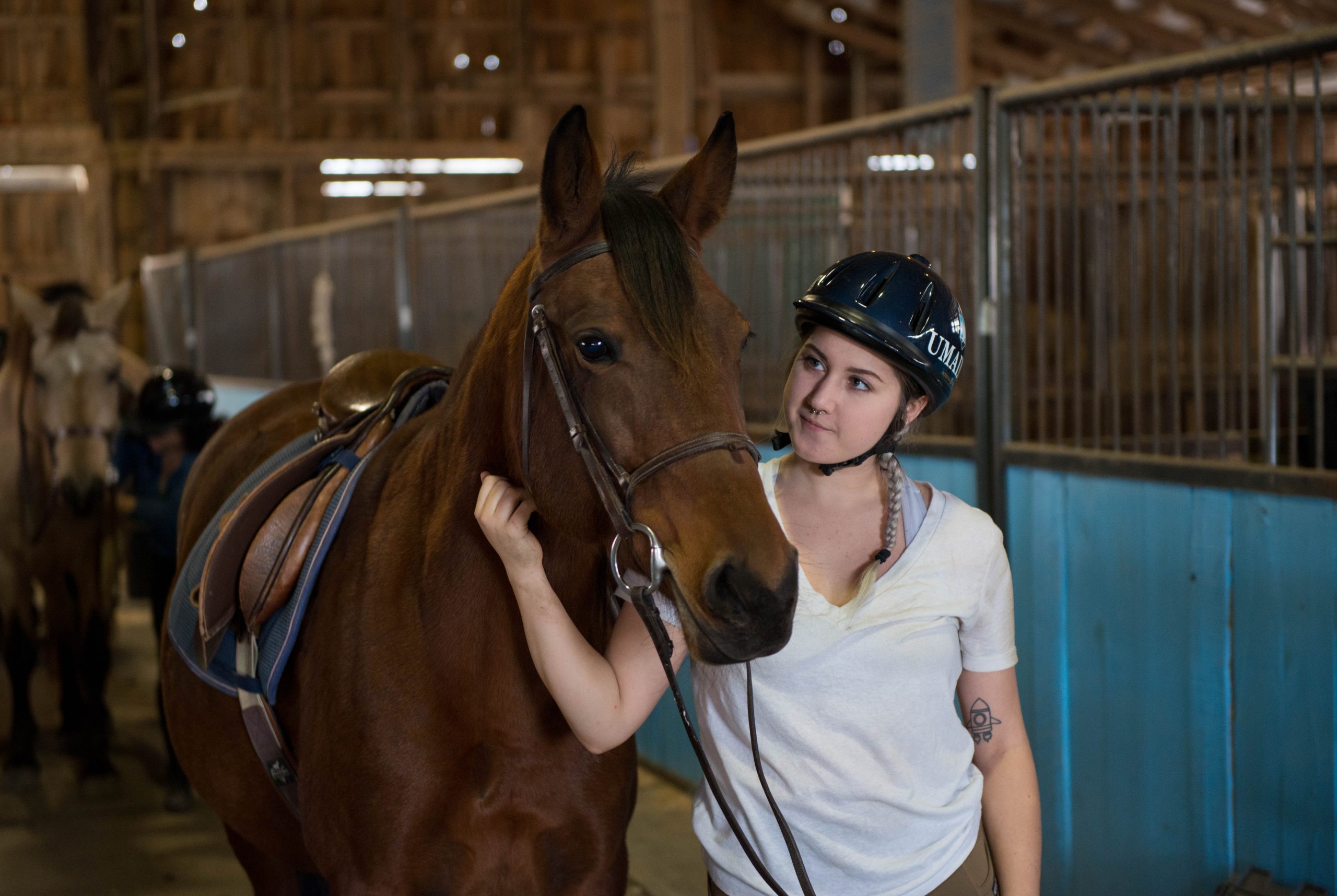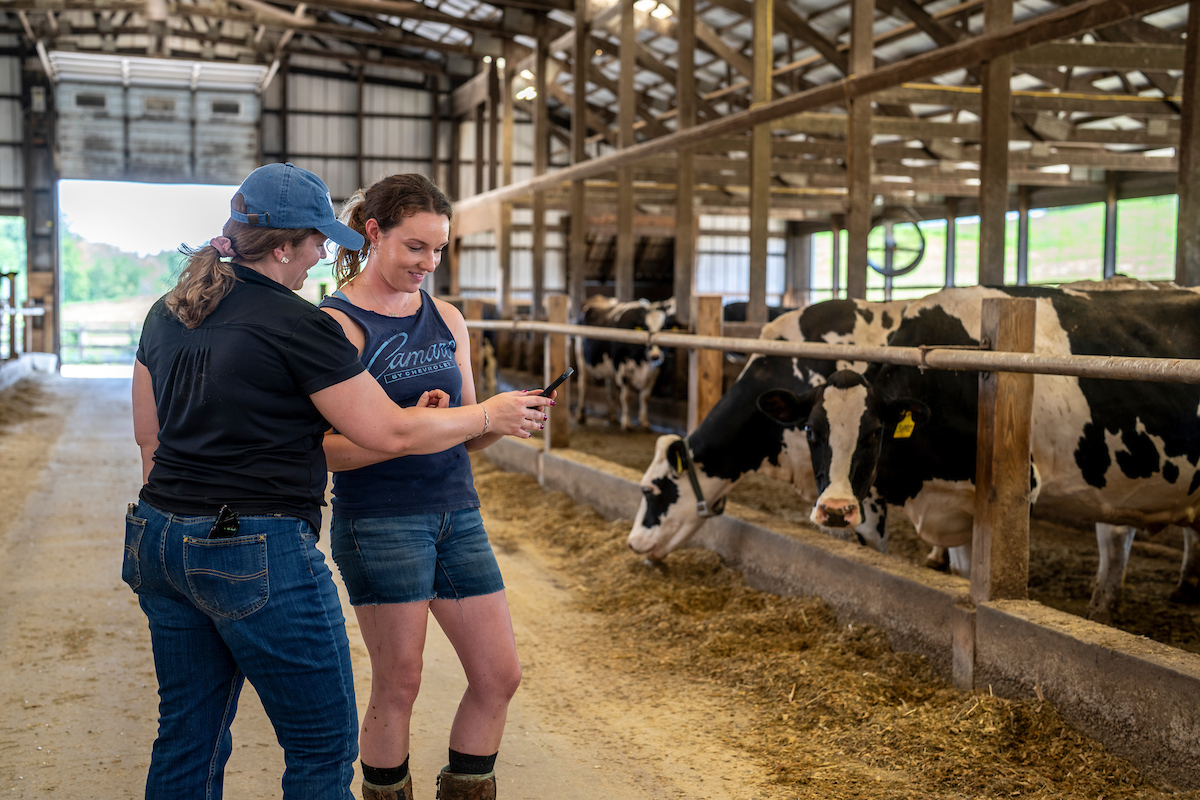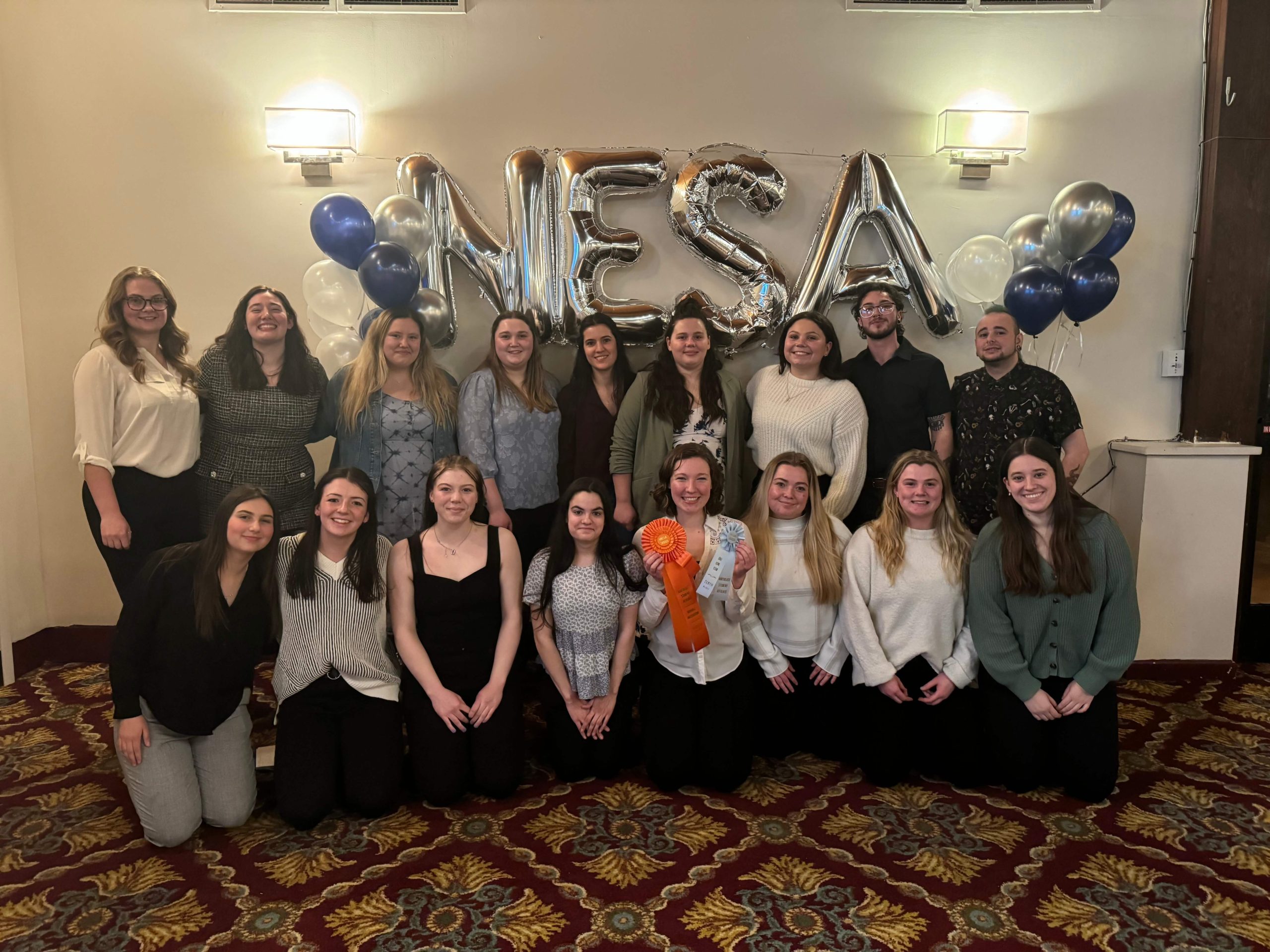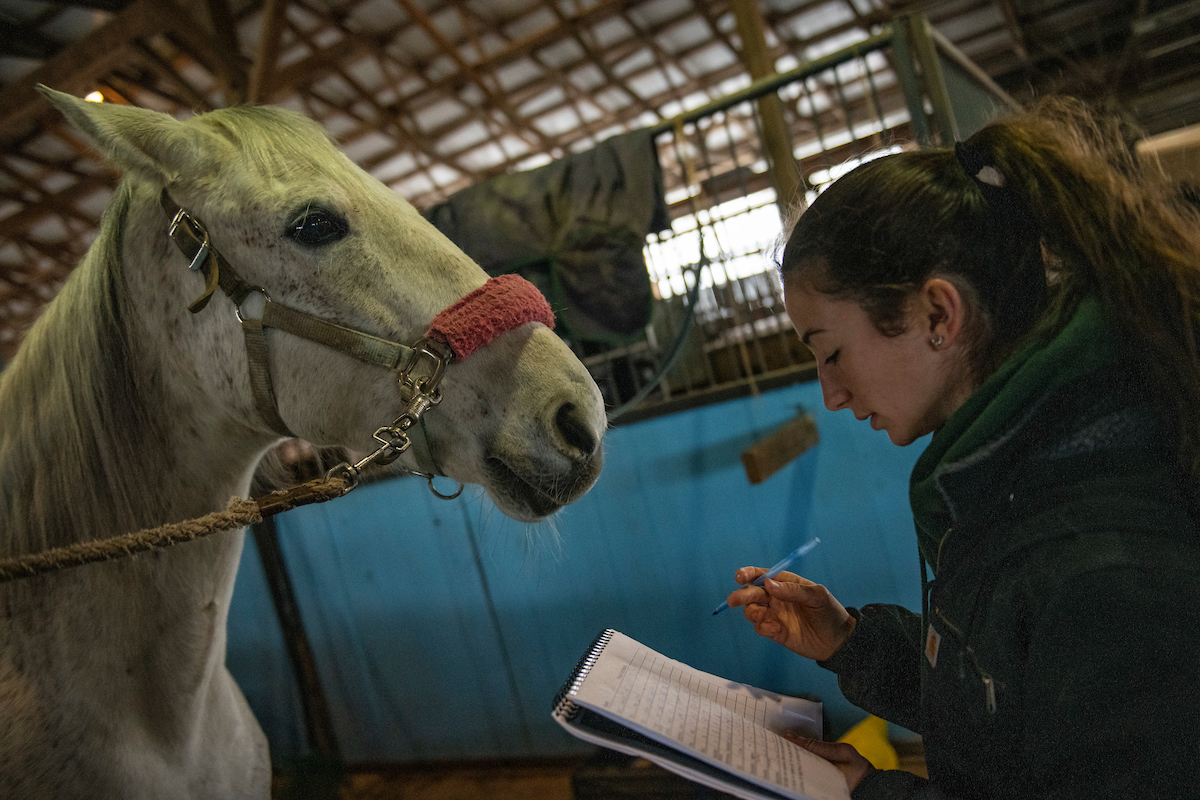B.S. Degree in Animal and Veterinary Sciences
The B.S. degree in Animal and Veterinary Sciences (AVS) prepares students for admission to a college of veterinary medicine or graduate school, to teach science in secondary schools, to pursue technical sales and service work in agriculture, for careers in animal-related research, or to develop animal production enterprises such as dairy, livestock or equine farms. About 20% of AVS graduates attend veterinary or medical school, the high rate of acceptance reflecting the quality of our program. Students either follow the basic Animal Sciences curriculum, or declare a concentration in Equine Sciences, Pre-Veterinary Sciences, or Pre-veterinary Bioscience Medical Microbiology . The Pre-Veterinary Sciences concentration includes courses that are required or recommended for admission to Colleges of Veterinary Medicine in North America.
An important aspect of the AVS degree is the requirement for hands-on experience with economically important domestic species. At the University’s J.F. Witter Teaching and Research Center, AVS majors are given numerous opportunities to increase their competency with, and eventually manage, dairy cattle and standardbred horses. We consider the experiential learning at the Witter Center to be a vital part of our students’ education because it allows them to use their knowledge to solve practical problems on a working farm. Please reach out to the Interim program coordinator, Tim Bowden (timothy.bowden@maine.edu) with any questions you may have.

